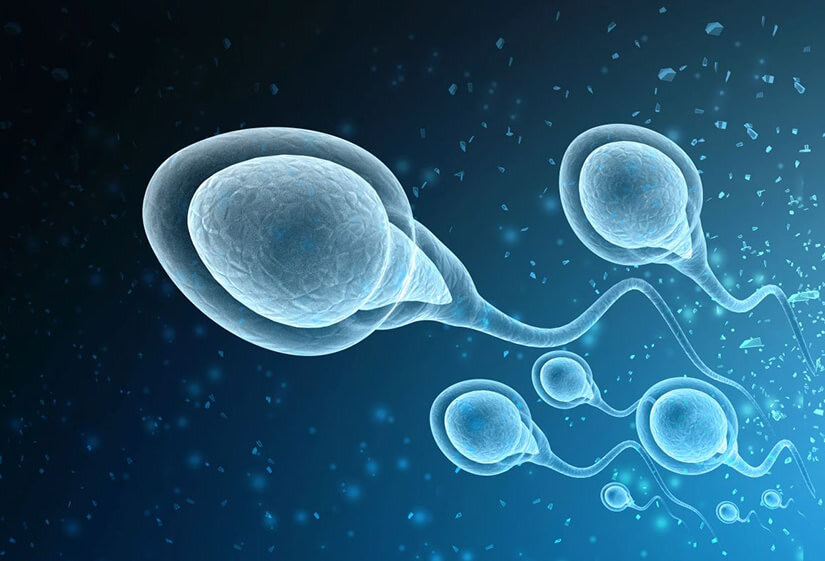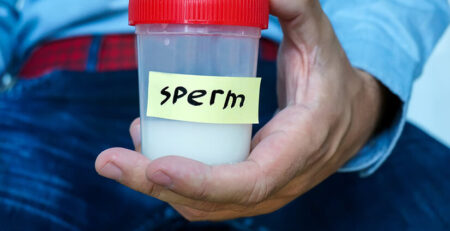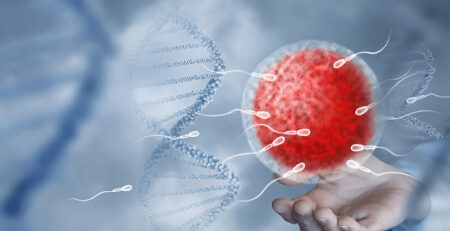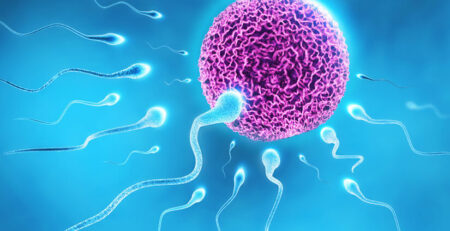IVF with Donor Egg and Sperm: A Hopeful Path to Parenthood
After years of trying, a couple finally hears the joyous news that they are expecting a baby. This beautiful moment can be tough to achieve for those facing fertility issues. But thanks to advances in reproductive technology, particularly IVF with donor egg and sperm, many aspiring parents now have new doors open to them.
What is IVF with Donor Egg and Sperm?
IVF, or in vitro fertilization, is a process where an egg is fertilized by sperm outside the body. The resulting embryo is then implanted into the uterus. Sometimes, couples face severe fertility issues, such as low-quality eggs or sperm, genetic disorders, or advanced maternal age. In these cases, using donor sperm and egg can be a viable solution.
Why Choose Donor Egg and Sperm?
Overcoming Infertility Challenges: Couples who can’t conceive naturally due to medical conditions can achieve pregnancy through this method. Medical conditions like low ovarian reserve, poor sperm quality, or even premature ovarian failure can make natural conception difficult. Donor sperm and eggs can bypass these issues, offering a new hope for starting a family.
Genetic Health: When a female has genetic issues that have likelihood to be passed to the offspring, donor eggs can be used. Donors can be thoroughly screened for genetic diseases, ensuring healthier embryos. This screening process includes tests for various genetic disorders and diseases, ensuring that the donor’s genetic material is free from serious health issues. This means that the resulting embryos are more likely to be healthy and free from genetic conditions that could affect their development and future health.
Increased Success Rates: Using high-quality donor eggs and sperm significantly improves the chances of a successful pregnancy. Studies have shown that the success rates for IVF using donor eggs and sperm are higher compared to using a couple’s own gametes, especially in cases where the woman is of advanced maternal age or has had previous unsuccessful IVF attempts.

The IVF Process with Donor Gametes
The IVF process with donor egg and sperm involves several steps for both the recipient and donors. Here’s a simple breakdown:
Preparing the Uterus: The recipient’s uterus needs to be ready for the embryo. Hormonal medications are given to thicken the uterine lining, making it receptive to the embryo. This preparation usually starts with the administration of estrogen to build up the lining, followed by progesterone to stabilize it, creating an optimal environment for the embryo to implant and grow.
Stimulating the Donor’s Ovaries: Donors undergo hormonal treatments to stimulate their ovaries to produce multiple eggs. This increases the chances of obtaining viable eggs for fertilization. The donor is closely monitored through blood tests and ultrasounds to track the development of the follicles in her ovaries.
Retrieving Donor Eggs: Once the eggs are mature, a minor surgical procedure called ovum pick-up is performed to retrieve them. This is done under sedation to minimize discomfort. Using a fine needle, guided by ultrasound, the eggs are gently aspirated from the follicles. This procedure usually takes about 20 to 30 minutes, and the donor can go home the same day.
Thawing Donor Sperm: If donor sperm is used, it is carefully thawed to maintain its viability for fertilization. Sperm samples are frozen using a process called cryopreservation in ART banks. When it’s time to use them, they are procured from the banks and then thawed slowly to ensure that the maximum amount of sperm remains viable and capable of fertilizing the eggs.
Fertilization: The retrieved eggs and thawed sperm are combined in a laboratory dish to facilitate fertilization. The embryologist carefully monitors the process, checking for signs of fertilization and embryo development. The fertilized eggs, now embryos, are kept in a controlled environment for a few days to allow them to develop.
Transferring the Embryos: Once the embryos reach a suitable stage of development, one or more are selected for transfer into the recipient’s uterus. This is usually a painless procedure. The embryos are placed into the uterus using a thin catheter, and the recipient can go home shortly after the procedure.
After the transfer, there is a waiting period to see if the embryo successfully implants in the uterine lining, leading to pregnancy. This period, known as the “two-week wait,” can be emotionally challenging for couples as they eagerly await the results.
Emotional and Ethical Considerations
Choosing both a donor egg and donor sperm involves emotional and ethical considerations. Couples should discuss their feelings and preferences extensively, often with the guidance of a counsellor. Open communication is crucial in navigating the complexities of donor-assisted IVF.
Emotional Impact: The decision to use donor eggs and donor sperm can bring up a range of emotions, from hope and excitement to anxiety and fear. Couples may feel a sense of loss over not having a genetic connection to their child, but they can also find joy in the possibility of becoming parents.
Ethical Considerations: It’s important to think about the ethical implications of using donor gametes. Issues such as the rights of the donor, the child’s right to know their genetic origins and the anonymity of the donor need to be considered. Couples should discuss these topics openly and honestly and consider seeking advice from a counsellor or ethicist if needed.
Legal Aspects in India
In India, regulations ensure that donor anonymity is maintained and that donors cannot claim parental rights. It is important to choose a reputable IVF centre in Delhi that follows these guidelines to ensure a smooth and legally compliant process.
Donor Anonymity: Indian law mandates that the identities of egg and sperm donors remain anonymous. This means that the donors cannot be contacted by the recipients or the resulting children. This helps protect the privacy of the donors and the families they help create.
Parental Rights: Donors in India do not have any legal rights or obligations toward the children born from their donations. This ensures that the recipient’s parents have full parental rights and responsibilities, just like any other parent.
Choosing the Right IVF Centre in Delhi
Selecting the right IVF centre is crucial for a successful outcome. Look for a centre with a high success rate, advanced technology, and a compassionate team of specialists. Personalized care and a supportive environment can make a significant difference in the journey to parenthood.
Success Rates: Investigate the centre’s success rates with donor egg and sperm IVF. High success rates are often a good indicator of the centre’s expertise and the quality of its services.
Advanced Technology: Ensure the IVF centre uses the latest technology and techniques. This includes state-of-the-art laboratory equipment, advanced embryo culture systems, and cutting-edge fertility treatments.
Compassionate Care: The journey through IVF can be emotionally and physically demanding. A supportive and compassionate team can significantly improve your experience. Look for a centre where the staff are not only skilled but also empathetic and understanding.
The Next Steps Ahead
IVF with donor egg and donor sperm offers a ray of hope for many couples struggling with infertility. By understanding the process, benefits, and considerations, couples can make informed decisions about their fertility journey.
Making an Informed Decision: It’s important for couples to educate themselves about all aspects of the IVF process with donor gametes. This includes understanding the medical procedures, the emotional and ethical implications, and the legal aspects. Knowledge is power, and being well-informed can help couples feel more confident and prepared for the journey ahead.
Seeking Expert Guidance: Consulting with an experienced IVF specialist can provide valuable insights and guidance. Specialists like Dr. Rhythm Gupta, a renowned IVF specialist in Delhi, can help couples navigate the complexities of the process with compassion and expertise.
Taking the First Step: If you’re considering IVF with a donor egg and sperm, the first step is to schedule a consultation with an IVF centre. During this initial visit, you can discuss your medical history, undergo preliminary tests, and explore your options with the specialist.
Support Systems: Building a strong support system is crucial during this journey. This includes not only your partner but also friends, family, and support groups who can provide emotional support and encouragement yet keeping things confidential.
Financial Considerations: IVF can be expensive, and using donor gametes can add to the cost. It’s important to understand the financial aspects and explore options for financing or insurance coverage if available.
Maintaining Hope: The path to parenthood through IVF with donor egg and sperm can be challenging, but it’s important to maintain hope and stay positive. Many couples have successfully built their families through this process, and with the right support and guidance, you can too.
If you’re considering IVF with donor egg and sperm and seeking expert guidance, Dr. Rhythm Gupta, at a renowned IVF centre in Delhi, can help you navigate this journey with compassion and expertise. Contact her clinic today to take the first step toward fulfilling your dream of parenthood.












